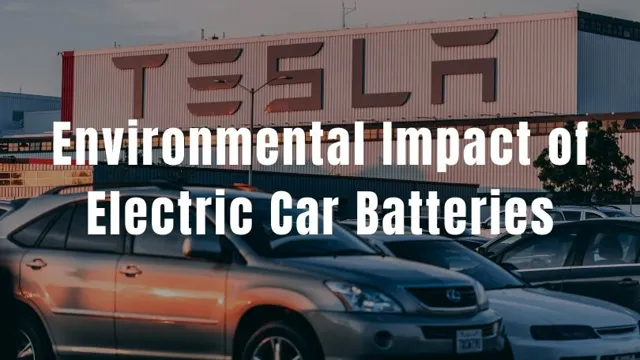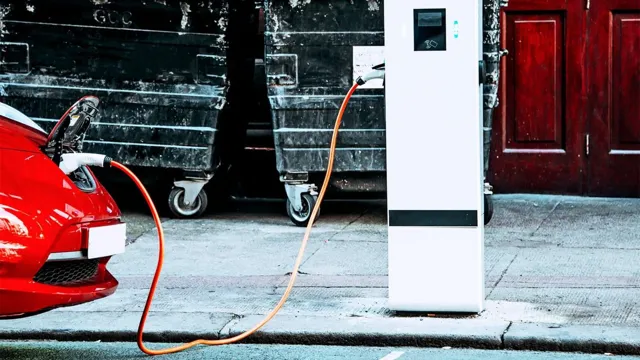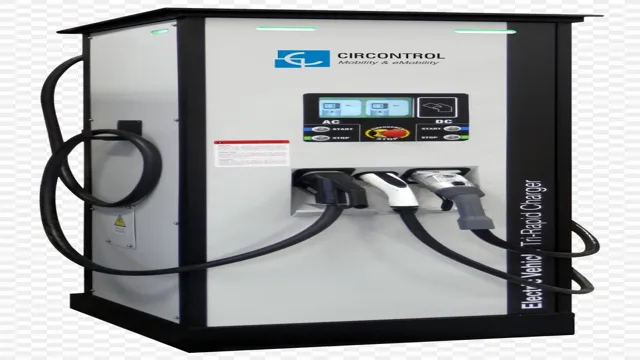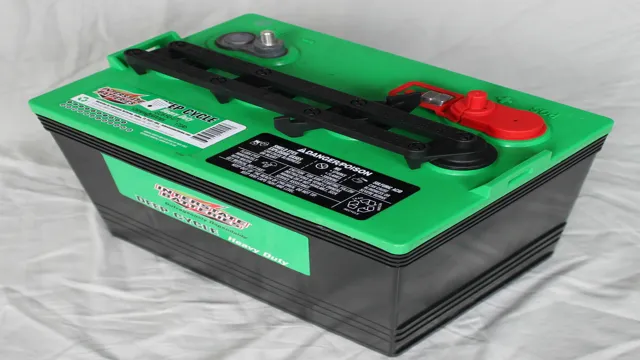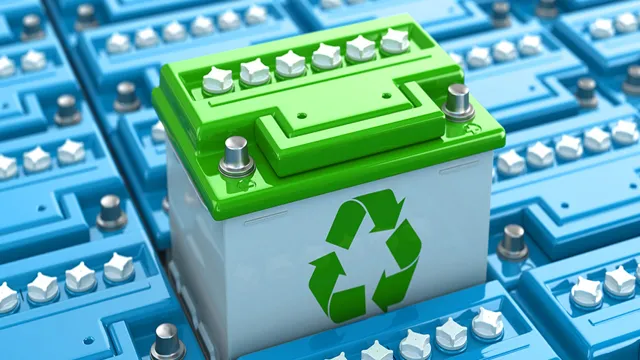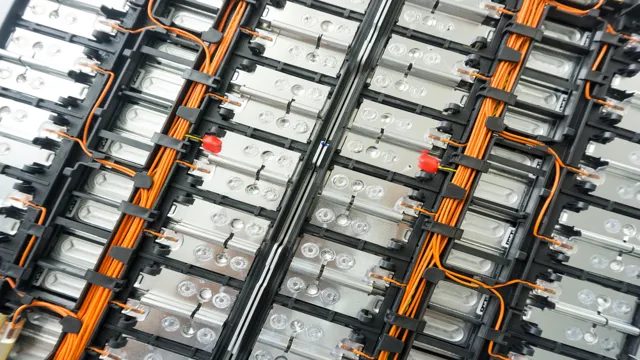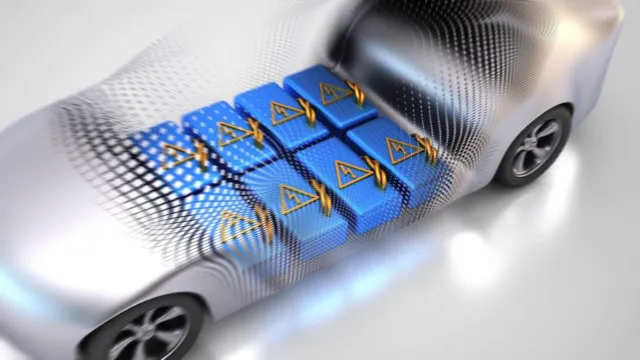Shocking Truth Revealed: How Electric Car Batteries are Reducing Pollution
Electric cars have become an increasingly popular mode of transportation in recent years, largely due to their environmentally friendly reputation. However, there is one aspect of electric cars that has sparked controversy: the batteries they use. Some argue that the production and disposal of batteries used in electric cars contribute to pollution, undermining the eco-friendliness of these vehicles.
So, what is the truth about electric car batteries and pollution? Let’s explore this topic in-depth to get a clearer understanding of the impact of these batteries on the environment.
Battery Production’s Environmental Impact
Electric car batteries have become increasingly popular as a way to reduce reliance on fossil fuels. However, while promoting clean energy, the battery production process can have a significant impact on the environment. Electric car batteries require a significant amount of energy to produce, and this often comes from non-renewable sources.
Additionally, the mining of metals like cobalt and lithium, which are essential components of electric car batteries, can have a significant impact on the environment. The process of mining can lead to land degradation, water pollution, and harm to wildlife. Furthermore, the disposal of batteries at the end of their lifespan can also be problematic as they contain hazardous materials that can harm the environment if not disposed of properly.
While electric car batteries have the potential to reduce pollution in the long run, it’s important to consider their full lifecycle impact to ensure that they aren’t doing more harm than good to the planet.
Extraction of raw materials
The production of batteries poses a significant environmental threat due to the extraction of raw materials. The mining process involved in obtaining the lithium, cobalt, and nickel used in batteries causes damage to the natural habitat and ecosystems. Additionally, the process requires large amounts of water and energy, which contributes to greenhouse gas emissions and air pollution.
The high demand for batteries in today’s society has only increased the pressure on these resources. However, efforts are being made to mitigate the impact of battery production by implementing sustainable practices, such as sourcing materials from recycled batteries, improving extraction processes, and reducing energy consumption. As consumers, we can also make a difference by recycling our old batteries and using our devices responsibly to extend their lifespan.
It’s crucial that we take steps to reduce the environmental impact of battery production, as it plays a significant role in shaping the world we live in.
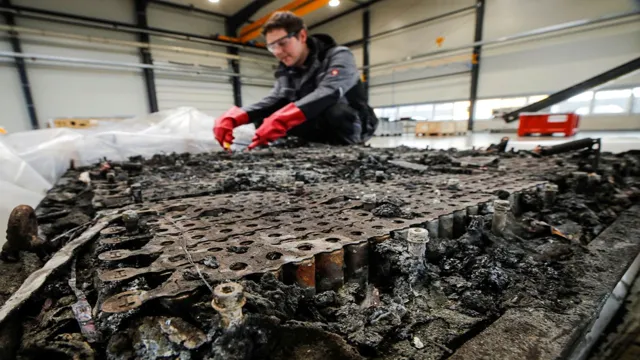
Energy-intensive manufacturing process
Battery production is an energy-intensive manufacturing process that has significant environmental impacts. The production of batteries involves the use of heavy metals, such as lithium, cobalt, nickel, and manganese, which can have detrimental effects on soil and water quality. The process also requires large amounts of energy, resulting in high carbon emissions and contributing to climate change.
However, as the demand for electric vehicles and renewable energy storage solutions increases, the production of batteries is becoming more crucial. Companies are exploring ways to improve the sustainability of the production process, such as sourcing materials from ethical and environmentally responsible suppliers, increasing the use of renewable energy in production, and implementing better recycling systems. It is essential to strike a balance between meeting the growing demand for batteries while mitigating the environmental impacts of their production.
Transportation and disposal of batteries
Battery production has a significant environmental impact, particularly regarding the transportation and disposal of batteries. The transportation of batteries requires significant energy consumption and generates greenhouse gas emissions. Battery disposal can also lead to environmental pollution due to the toxic materials used in their production, such as lead, cadmium, and mercury.
Fortunately, there are several initiatives to address this issue, including the development of cleaner transportation methods and the implementation of recycling programs for batteries. With the advancement of technology, we can expect more sustainable solutions for battery production in the future. As consumers, we can also do our part by properly disposing of our used batteries and supporting companies that prioritize environmental sustainability.
By working together, we can significantly reduce the environmental impact of battery production and ensure a healthier planet for future generations.
Reducing Pollution with Electric Cars
Electric car batteries are a game-changer in the fight against pollution. Unlike traditional gas-powered cars, electric vehicles emit zero tailpipe emissions, eliminating the harmful pollutants, such as carbon monoxide and nitrogen oxides, that contribute to poor air quality and respiratory health issues. However, critics of electric cars often criticize the production of their batteries as being equally harmful to the environment.
While it’s true that battery production does have an environmental footprint, studies show that over the vehicle’s lifetime, the emissions savings from owning an electric car significantly outweigh the production costs. Additionally, battery recycling programs are becoming increasingly common and help reduce the environmental impact of disposing them. Ultimately, investing in an electric car with batteries made from sustainable materials and responsibly recycling them after use can go a long way in reducing pollution and promoting a cleaner, healthier environment.
Zero tailpipe emissions
Electric cars are the future of transportation, with their ability to reduce pollution and contribute positively to environmental sustainability. By replacing conventional vehicles that run on fossil fuels, electric cars produce zero tailpipe emissions, making them an ideal option for those who want to protect the environment while still enjoying the freedom of driving on the road. The reduction of pollution caused by electric cars comes from the fact that they rely on electricity generated from renewable sources, eliminating the need for harmful emissions that damage the air quality and contribute to global warming.
Furthermore, electric cars can help reduce noise pollution, creating a much quieter and peaceful transportation experience. Therefore, investing in an electric car is not only eco-friendly but also a smart decision for a sustainable future.
Energy-efficient and renewable charging
As we become increasingly aware of the impact we are having on the environment, many people are looking for ways to reduce their carbon footprint. One way that this can be achieved is by choosing electric cars, which emit far less pollution than their gas-guzzling counterparts. But it’s not just the vehicles themselves that can make a difference.
We also need to consider how we charge them. Using energy-efficient and renewable charging methods can further reduce the amount of pollution that is emitted. For example, solar panels can be used to power charging stations, enabling electric cars to be powered by the sun’s rays.
This reduces the need to use non-renewable energy sources to power our cars and helps to preserve the planet for future generations.
Potential for grid-level energy storage
Electric cars are becoming increasingly popular as people search for ways to reduce pollution. In addition to providing cleaner transportation, these vehicles hold immense potential for grid-level energy storage. As more and more electric cars hit the roads, they are creating a massive network of battery packs that can store vast amounts of energy.
This could help to balance fluctuations in electricity supply and demand, making renewable energy sources more reliable and efficient. In effect, electric car batteries could become part of the solution for reducing the carbon footprint of energy production. The opportunities for grid-level energy storage are not just limited to electric cars, however.
Other storage technologies such as pumped hydro, thermal storage, and flow batteries are also being developed and deployed. As we move towards a cleaner energy future, grid-level energy storage will become increasingly important for ensuring a reliable, efficient, and sustainable energy system.
Future Trends in Eco-Friendly Electric Cars
When it comes to eco-friendly electric cars, one of the biggest concerns is the environmental impact of their batteries. Traditional lithium-ion batteries used in electric cars contain substances like cobalt, nickel, and manganese, which are not only expensive but contribute to pollution during the manufacturing process. However, researchers and engineers are constantly working on developing new battery technologies using more sustainable materials like sodium, magnesium, and iron.
These improved batteries have the potential to be cheaper, lightweight, and much better for the environment. Additionally, advancements in recycling technology make it possible to reuse the materials found in old or damaged batteries, reducing waste and pollution. While there are still challenges to overcome, it’s clear that the future of eco-friendly electric cars will be powered by cleaner, more sustainable battery technologies.
Advancements in battery technology
Electric Cars Electric cars are becoming increasingly popular thanks to advancements in battery technology. As we move towards a more eco-friendly future, car manufacturers are racing to produce cars that not only run on electricity but are also more efficient and cost-effective. One of the biggest trends in electric cars is the development of lithium-ion batteries, which have a higher capacity than traditional lead-acid batteries.
These batteries are more robust and can hold more charge, meaning longer driving times and less frequent charges. With the use of lithium-ion batteries, electric cars are becoming more practical for everyday use, making them a viable option for an increasing number of people. In the coming years, we can expect to see even more developments in the electric car industry, as car manufacturers continue to push the boundaries of battery technology to make electric cars even more affordable, eco-friendly, and efficient.
The future is looking bright for electric cars, and as the technology continues to improve, we can expect to see more and more of them on the road.
Shift towards sustainable materials and manufacturing
As electric cars continue to rise in popularity, it’s important to consider the sustainability of both their materials and manufacturing processes. We’re seeing a shift towards using eco-friendly materials in the construction of electric cars, such as recycled plastics and natural fiber composites. This not only reduces the amount of waste in landfills but also decreases the carbon footprint of producing these vehicles.
Additionally, manufacturers are working to implement sustainable practices throughout the entire manufacturing process, from using renewable energy sources to reducing water usage. As consumers become more environmentally conscious, it’s likely that we will see an increasing demand for electric cars that are not only energy-efficient but also sustainably made. By embracing these trends, we can move towards a future where electric cars are truly eco-friendly and help us reduce our impact on the planet.
Conclusion
In conclusion, electric car batteries have the power to break the toxic cycle of pollution caused by traditional fuel-powered vehicles. By choosing to charge our cars with clean energy, we can help to reduce greenhouse gas emissions and protect the environment for generations to come. So next time you’re driving around town, remember that the power to fight pollution is in your hands – or, more accurately, in your electric car’s battery!”
FAQs
How do electric car batteries impact pollution levels?
Electric car batteries have a lower environmental impact than traditional gasoline cars because they do not emit pollutants during use. However, the production of these batteries still produces some emissions and requires the extraction of raw materials, so reducing their environmental impact requires considering the entire lifecycle of the battery.
Are there alternatives to lithium-ion batteries for electric cars?
Yes, there are alternative battery technologies being developed for electric cars, including solid-state batteries, flow batteries, and zinc-air batteries. These alternative technologies offer different benefits such as increased energy density, longer lifetimes, and lower costs.
How can recycling of electric car batteries reduce pollution?
Recycling electric car batteries can help reduce pollution by preventing the release of toxic chemicals that can harm the environment and human health. Recycling also reduces the need for new battery production, which reduces the amount of energy and resources required, leading to lower emissions.
What is the role of governments in reducing pollution from electric car batteries?
Governments can encourage the use of electric cars and invest in the development of battery technologies through policies such as tax incentives, subsidies, and research funding. They can also regulate the environmental impact of battery production and disposal to ensure that these processes are done in an environmentally responsible way.

